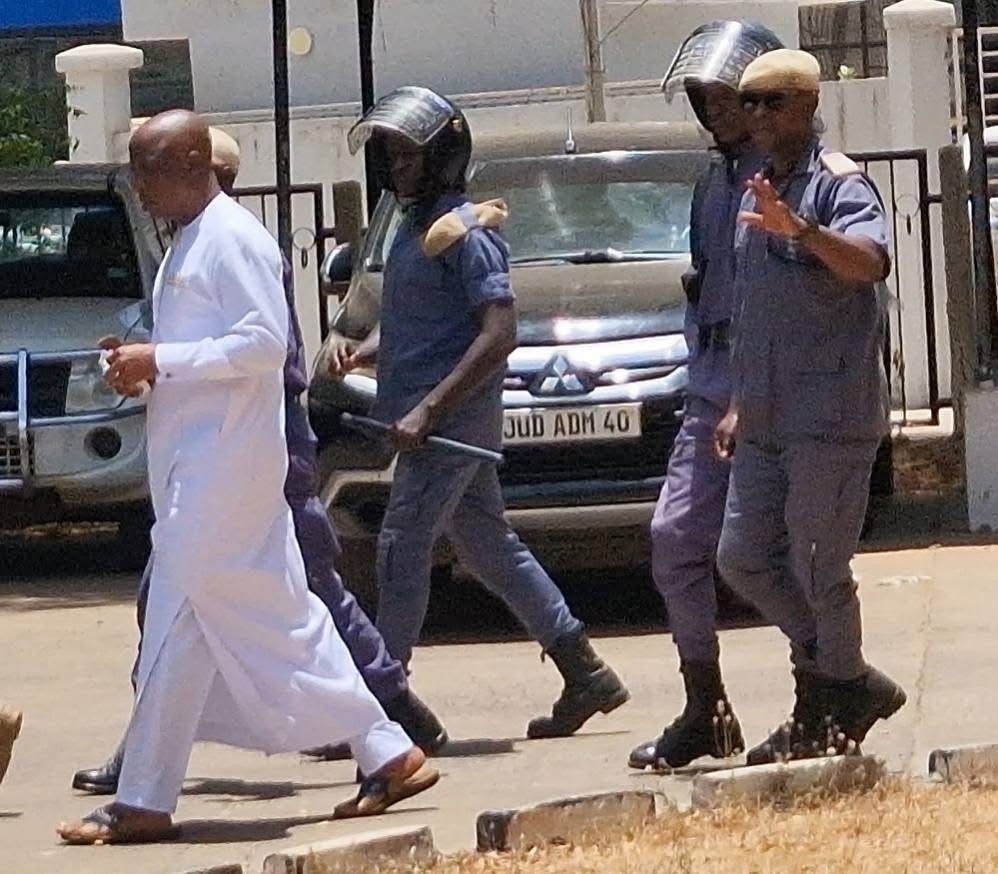Gambia’s Supreme Court Upholds Murder Conviction of Yankuba Touray, Overturns Death Sentence

The Supreme Court of The Gambia on Monday upheld the murder conviction of Yankuba Touray, a former member of the country’s military junta, in connection with the 1995 killing of Finance Minister Ousman Koro Ceesay. However, the court overturned the death sentence previously imposed by lower courts, substituting it with a sentence of life imprisonment.
Touray, a former ally of ex-President Yahya Jammeh, was convicted in 2021 by the High Court for the murder of Ceesay and sentenced to death by hanging. The conviction was upheld by the Court of Appeal. Touray subsequently brought his case before the Supreme Court, challenging both the verdict and the constitutionality of the death sentence.
In a unanimous judgment delivered by Justice Awa Bah, the Supreme Court affirmed the decisions of the High Court and the Court of Appeal, finding that the prosecution had proven the case beyond a reasonable doubt. The Court held that the testimony of key prosecution witness Alagie Kanyi — an accomplice — was sufficiently corroborated by other evidence, linking Touray directly to the murder.
According to the prosecution, Ceesay was lured to Touray’s residence in Kerr Sering in June 1995, where he was brutally beaten to death by Touray and several others, including Edward Singhateh and Peter Singhateh. His body was later burned along the Sukuta-Jambur Highway in an apparent attempt to destroy evidence.
Touray denied the charges and mounted a defense, including an alibi. However, the Supreme Court rejected the alibi as “belated and unsubstantiated,” ruling that it lacked credibility and was not properly raised during trial proceedings.
The key point of contention in Touray’s appeal centered on the legality of the death sentence. His defense argued that the murder took place during a period when the death penalty had been abolished under the 1993 Death Penalty (Abolition) Act. The penalty was later reinstated through the Death Penalty (Restoration) Act, which came into effect on August 10, 1995 — nearly two months after the murder.
The Supreme Court agreed, finding that the death sentence imposed on Touray was unlawful, as the offense was committed while the abolition law was still in force. Citing the proviso in the 1995 Restoration Act, which prohibits death sentences for crimes committed between its enactment and commencement, the Court ruled that the sentence must be set aside.
Touray will now serve a life sentence, effective from the date of the original judgment on July 14, 2021.
Chief Justice Hassan B. Jallow presided over the five-member panel, which clarified that its decision applies solely to Touray and does not affect any other individuals alleged to have participated in the murder but not charged in this case.
The ruling brings to a close a legal battle stemming from one of the most politically sensitive killings of Gambia’s military era — a case that resurfaced decades later amid efforts to confront the country’s past abuses under the Jammeh regime.


Comments are closed, but trackbacks and pingbacks are open.